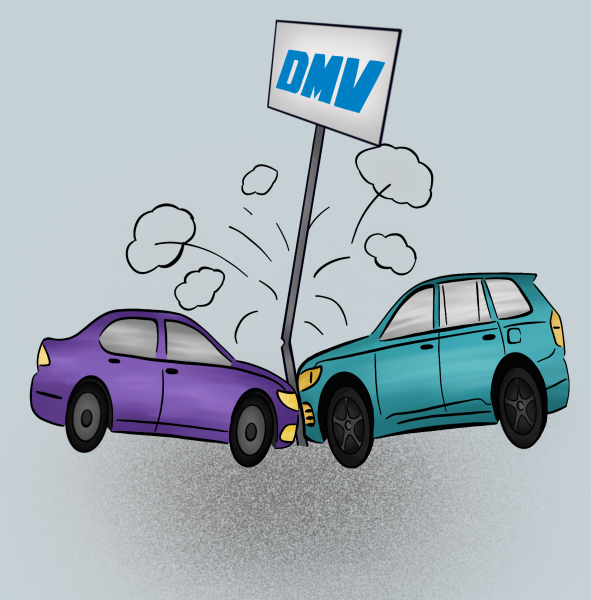Catalyst for Body Shaming Alters Image
February 25, 2016
57 years too late, but better now than never, the makers of Barbie have finally rejected the singular standard of beauty they’ve marketed since the debut of their first blonde-haired, white-skinned, stick-thin doll as the quintessential female form.
Announced by toy company Mattel on January 28, tall, petite, and curvy Barbie dolls will soon be offered alongside the original, totaling 4 body types in 7 different skin tones.
“Barbie reflects the world girls see around them,” Mattel CEO Richard Dickson said in a CNBC article by Kurumi Fukushima of the reason for Barbie’s transformation, but rumors abound that the new line is simply a last-ditch sales bid, a ploy for positive media, a jump on the bandwagon to political correctness.
It’s shameful to see a positive change by a company once so set on a single aesthetic, dismissed as a marketing ploy. “I’m glad I was raised in the 50’s when a doll was an object, not a role model, & boys could call me a cootie without going to the principal” said actress Kirstie Alley via her Twitter account.
I Support Barbie’s new line, not because I want to come off as progressive or politically correct, or because I’m afraid to be seen as body-shaming and racist, but because, like every other person in human society, I have to deal with beauty standards, and I’m glad that there are some companies who are at least trying to amend their ways. The majority of companies have not.
When I first learned about the dolls through a Buzzfeed video, I struggled to identify why I felt so happy. When I was a kid, I didn’t have any Barbies. I wanted them, but my mom refused to support the company. She said that she didn’t want me to grow up thinking that stiletto heels, tiny waists, and platinum hair represented beauty. I could get a realistic-looking doll instead.
I was annoyed. Back then, I thought she was trying to protect me from something for which I didn’t need protection. True, my friends and I would occasionally have small contests over who had the most extra room in their seat belt or who was the best “model,” but any insecurity I felt during these events was short-lived, and I never really considered that the way I looked was important. Until about 3rd grade, I don’t remember having much of a concept of body image.
When I was 7 or 8, a book I read involving futuristic body modification called Uglies inspired me to develop rather strange fantasies about turning into a different person. I planned to dye my hair a dark color, wear colored contacts, change my name, maybe get plastic surgery, once I turned 18. I came up with a series of different “people,” almost like variations of myself, who each possessed different physical traits and names. I can’t really remember why I was dissatisfied with who I was at the time.
I was a swimmer as a kid, but at some point, going to the pool became slightly nerve-wracking. One of the last times I remember going for fun was with a friend when I was 11. We were standing in a secluded area outside the bathroom, putting on sunscreen, when she started talking about how she felt self conscious in her bikini. She said she felt disgusted by the fat on her stomach, and pinched as much of it as she could to prove her point. I did the same, and she remarked in shame that I was thinner. I remember feeling gratified by this.
The next summer, when I was 12, I was at a tennis camp that had a scale in the downstairs bathroom, and every time my friend and I went to the bathroom (we were required to go in pairs,) she would point it out and tell me to weigh myself so we could “compare.” I consistently declined the offer with some vague excuse, and one day she became suspicious. “Why are you acting so weird about it?” I remember her asking. “I just want to see.” I ran out of the bathroom and hid upstairs for a while, and when I found her again neither of us mentioned it.
Later that week, I snuck back, alone, and weighed myself.
After I learned to judge the obvious things, like weight and amount of body fat, I became more conscious of specific parts of my body. In 7th grade, a friend of mine mentioned she had heard that the prominence of someone’s collarbones showed how skinny they were. We all checked our collarbones in the bathroom mirrors, anxious to see if we were actually skinny and how we compared to each other. The girl with the thinnest body frame, whose bones were the most visible, was proclaimed the envy of us all.
While these experiences happened long ago, I still think of them when looking in the mirror. Are my collarbones as prominent as they should be? How much skin can I pinch off of my stomach? Do I weigh more than all my friends?
Body confidence, or lack thereof, comes from an accumulation of different experiences, and the ways I’ve learned to criticize my physical appearance have accumulated over the course of my life. I’m not alone; I’ve heard other girls say they’re insecure about knees, knuckle joints, ears, elbows, fingernails, and more.
I wasn’t born thinking that beauty and ugliness exist, or knowing what form they take. I learned over time that beauty is a perfect complexion, a thin body, hairless skin, shiny, straight hair, and endless other things that the majority of women don’t possess, at least not naturally. If we can remove even one of those influences, I think that’s something to be happy about.
I think some people are missing the point I see in Barbie’s new line. The point isn’t for a girl to pick up a “curvy” doll and suddenly feel confident again, because that’s not going to happen. Playing with realistic dolls won’t save a girl’s self confidence any more than not playing with unrealistic dolls saved mine. The point isn’t for every kid to rely upon a toy line to tell them what is or isn’t acceptable. The point is that Barbie will no longer represent a damaging, unattainable standard of beauty that has become an iconic part of American society.
Some people say that movements like these are unnecessary or a waste of time because it’s a woman’s job to take ownership of her self esteem and not rely upon anyone else to validate her, but the reality is that there are elementary-school girls who are practicing how to suck in their stomachs and comparing bodies with friends, and they’re doing that for reasons that are out of their control. The small minority of women are able to reject such influences and develop confidence, but if we continue to expect the majority to do that by themselves then nothing will change.
Thinness is aestheticized immensely in our culture. Clothes look better on thin people, photos of thin people look better, and the majority of people who work in careers like acting and modeling are thin. I’ve noticed that I view very skinny actresses in TV shows as “normal,” not really noticing their size, but if I see an average-sized person they look out of place, almost like their physical appearance is somehow distracting, because it’s not what I’m used to seeing. I feel guilty, but to date, my effort to change has been futile.
Another reason I have trouble telling myself that my appearance doesn’t matter is that I know my success in the workplace will be influenced by how I look. According to Psychology Today, attractive women have an easier time landing jobs and earning higher salaries, both things that do actually matter for my future.
I’ve accepted that the majority of people I come in contact with throughout my life will know me more by how I look than anything else. I know that it’s impossible for beauty and ugliness not to exist. But I’m tired of efforts to promote body positivity, which have no legitimate downsides, being shut down by people who seem to dislike the idea of women challenging social convention and turning the tables in their favor.
I think it is possible for kids to be raised without some of the influences that shaped older generations.
The blame for this problem and responsibility for fixing it should lie with the companies who have profited from body shaming in the first place. Mattel is a good place to start.



